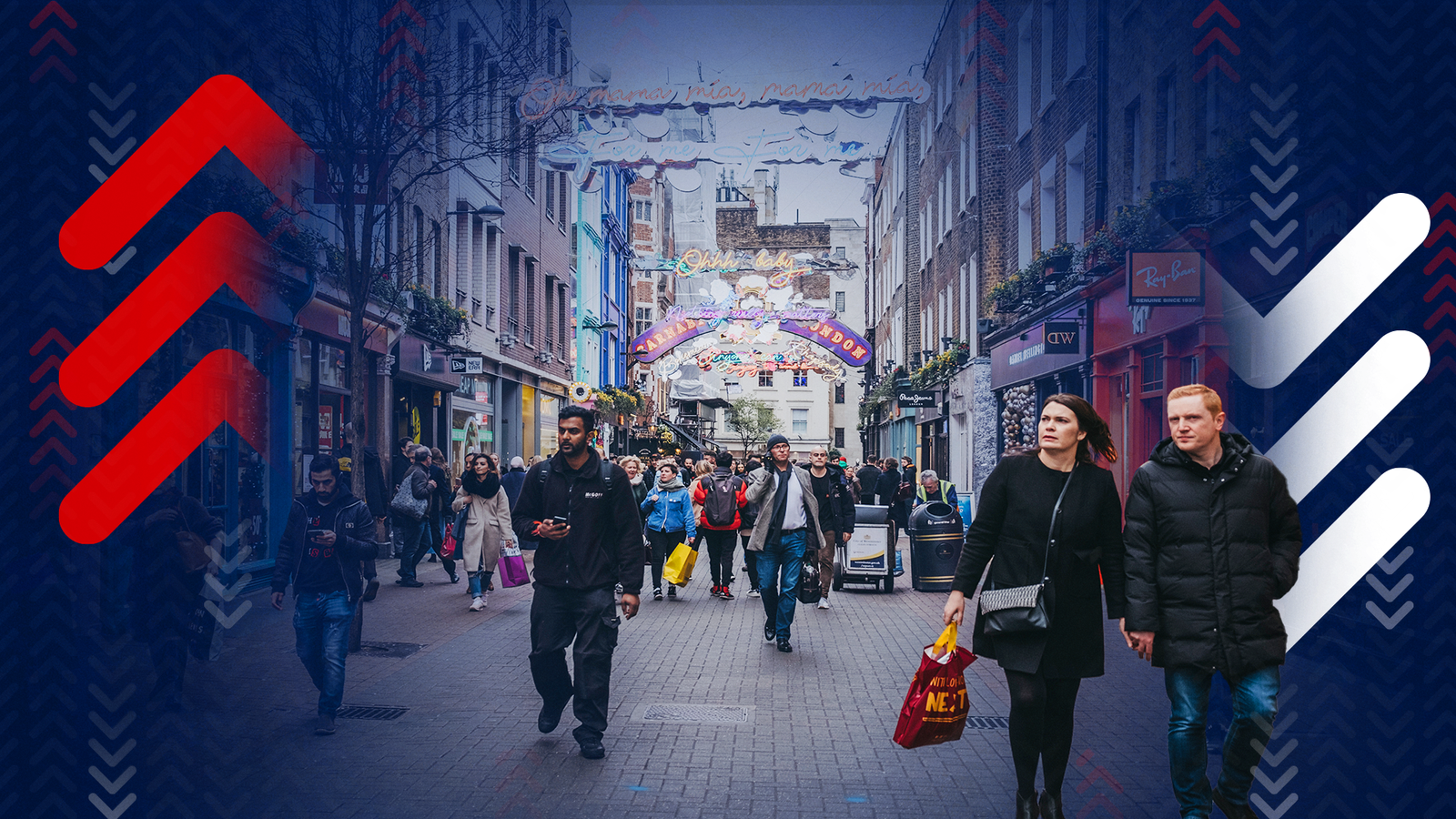Consumer spending still below inflation but cinema and travel outlays buck the trend

Consumer spending remained broadly below inflation last month but people forked out for holidays and entertainment as pent-up demand was released.
Closely watched data from the British Retail Consortium (BRC) and KPMG, as well as from Barclays, showed spending rose by 4.2% and 9.7% in value terms respectively in January compared with a year ago.
Both readings fell short of inflation, which stood at 10.5% in December, latest figures showed.
The readings were also flattered by the impact of COVID in January 2022 when the spread of the Omicron variant and associated restrictions reduced retail activity.
The BRC’s retail sales monitor, compiled with KPMG, warned discretionary spending will be weak as higher household bills and more expensive mortgages weigh on households.
Paul Martin, UK head of retail at KPMG, said tightly controlled spending dominated the first month of 2023 and the short-term outlook “remains challenging”.
“With inflation running at around 10%, sales growth for January nearly halved in comparison to December to just over 4% – sending a clear signal that consumers have started the year with a tight rein on spending as they face another period of rising costs.”
Both data sets showed an increase in non-essential items with figures from Barclays saying spending on such items grew 10.4% year-on-year in January – the largest increase since May 2022 as retail, hospitality and travel experienced noticeable growth from when Omicron restrictions were in place.
Please use Chrome browser for a more accessible video player
2:50
Bank of England Governor sees signs that inflation has peaked but there is still a long way to go and big risks remain
Overall the discretionary entertainment sector had a significant rise of 21.3% – the largest increase since June 2022, Barclays figures showed.
Advertisement
Pubs, bars and clubs also enjoyed the biggest uplift since May 2022 – 18%. Restaurants saw a noticeable improvement compared to December – up 4.7% compared with a decline of 3.9%.
Aside from the reduced impact of COVID restrictions, the growth can also be attributed to the transport strikes in December, which caused many Christmas party bookings to be rescheduled for January, Barclays said.
Some of the largest spending increases were on holidays. The travel sector had a 66.1% increase as consumers booked getaways for the year ahead.
Read more from Sky News:
Housebuilders to meet Hunt for talks as industry tax bill soars
Bank of England rate-setter urges more hikes to avoid ‘policy boogie’
Spending at travel agents and airlines rose 83.1% and 75.7% respectively over the year. Domestic travel benefited too as bookings with hotels, resorts and accommodations experienced a 12.2% growth.
This growth in value is likely due to a combination of the impact of the restrictions in 2022, higher prices, and people spending more on holidays to make up for missed holidays over the pandemic years.
Click to subscribe to The Ian King Business Podcast wherever you get your podcasts
Clothing “continued to prop up the high street”, Mr Martin said: men’s clothes and shoes were the strongest category in January.
Energy efficient appliances remained a top purchase for consumers, he added.